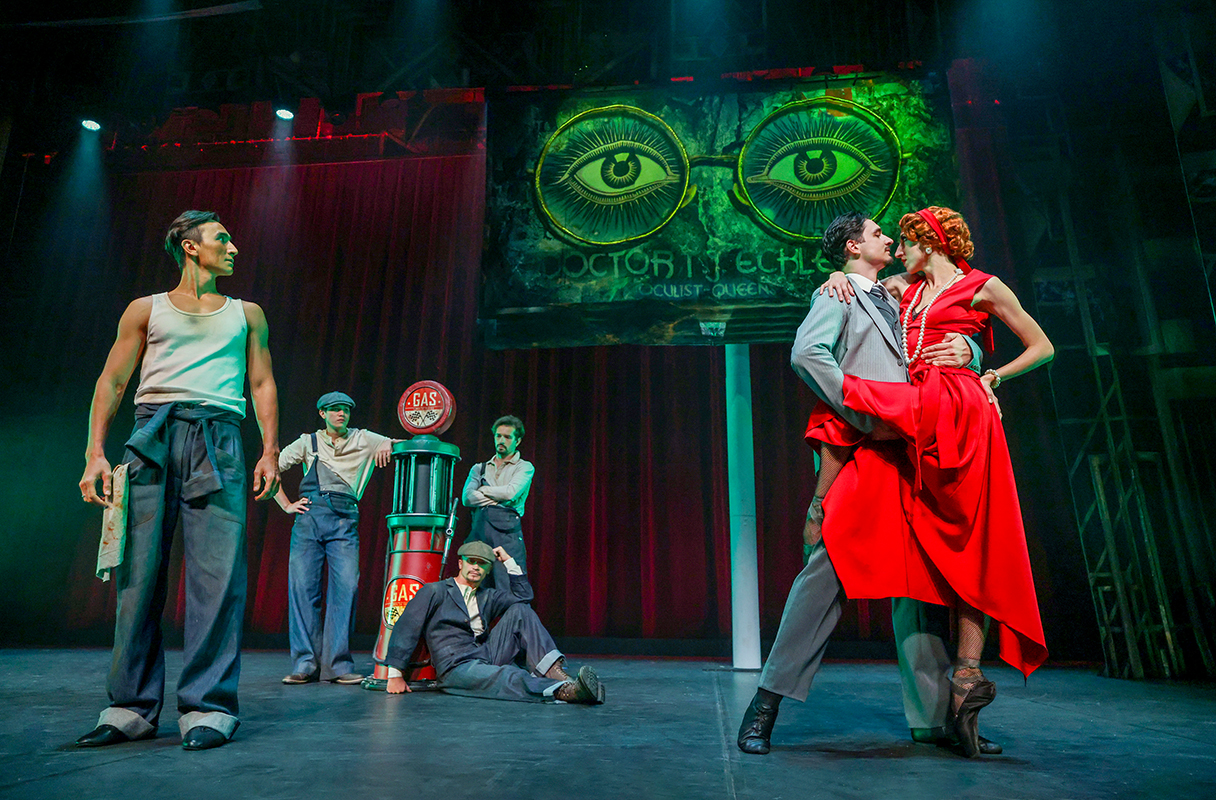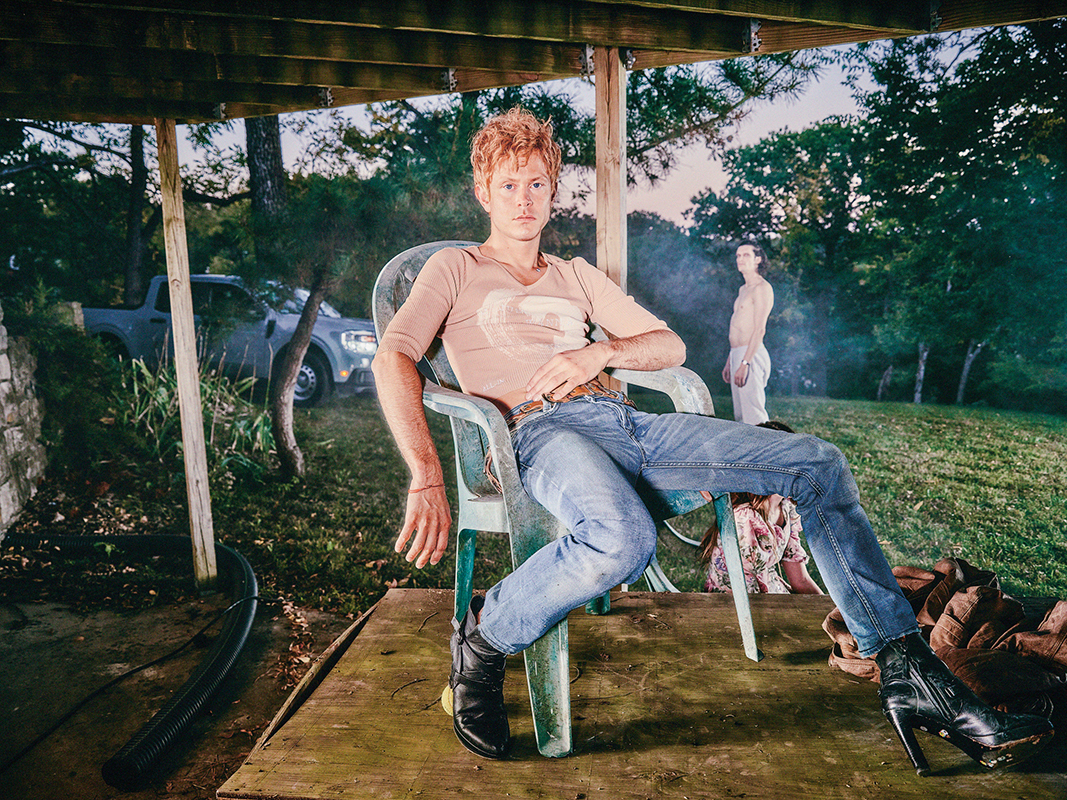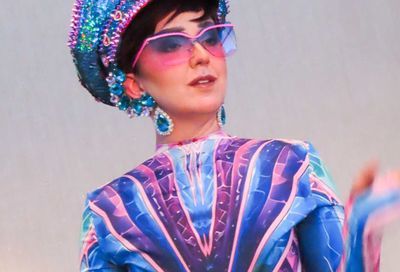Lucy Bowen McCauley reflects on 25 years of her celebrated dance company
Bowen McCauley Dance presents its final performance on Sept. 14, 2021

“I grew up in the dance world, in the ballet world, so I have had many gay friends in my life,” Lucy Bowen McCauley says. “And starting at an early age, I understood what it meant.” During her long and celebrated dance career, Bowen McCauley also came to understand just how devastating and impactful a major public health crisis caused by a deadly virus can be.
“I accepted a scholarship to the Joffrey Ballet School in New York City,” she explains. “I moved there in 1977, and the AIDS epidemic hit home very soon after that in New York. I lived in the Village. I lost so many friends and mentors, including Mr. Joffrey. It was so horrible! So horrible. I know so many names on those quilts. It hugely affected my life.”
By contrast, the second major public health crisis of her life has been “hard and disappointing, and things got delayed,” but the biggest challenge from COVID-19 for Bowen McCauley has been to keep herself and the dancers in her eponymous company in good shape, both physically and psychologically.
Bowen McCauley started the chamber-sized contemporary dance company roughly two decades into her career, and after she had moved from New York to D.C. to be closer to her sister. “I took two different dancing jobs, and I loved it. Quite honestly, I was a bigger fish in a smaller pond,” she says. In a field “so physical that most dancers retire by age 35 or 40,” Bowen McCauley began noticing there were plenty of other local dancers “who weren’t fully employed dance-wise [but were] maybe 30 years old. [They] still had a lot to offer, but weren’t going to be in a full-time ballet company anymore. So I saw this wealth of dancers on hand, and wanting to choreograph, I founded the company.”

A signature hallmark of Bowen McCauley Dance over the course of its 25-year history has been a commitment to live music, hiring musicians to accompany its dancers in performances — in a similar fashion to that of modern dance pioneer Mark Morris. “If I modeled my dance company after anybody’s, it’s his,” she says. “Live music is way more expensive, but it’s so much better. Mark always says, ‘We don’t ask you to come to the theater and then watch a film of the dancers dancing.’ You want live dancers and you want live music.
“I’m an extremely music-driven choreographer. I grew up playing piano and cello, neither very well, but I learned how to read music. I just have this really athletic and visceral response to music [and] I choreograph to a wide variety. Probably my choreography is better for certain kinds than others, but I’m out there experimenting.”
Bowen McCauley intends to keep experimenting in the years to come — just not through her company. In fact, she’s in the final stretch of shutting down for good. “It has been a passion and a blessing and wonderful, but 25 years is enough,” she says. “All good things have to end sometime, and so it seems like the right timing.”
Next week, Bowen McCauley Dance will present eight dancers accompanied by eleven live musicians for its final performance at the Kennedy Center, where the company has performed multiple times a year, typically in the Terrace Theater, for the past two decades. Its final bow will mark its debut in the larger Eisenhower Theater. “We’re going out with a bang,” she says. “Some companies that wind down do retrospectives and bring a lot of older works back — oldies but goodies. And there’s absolutely nothing wrong with that. But because of COVID, I have two pieces that haven’t had a chance to come to life.”
Bowen McCauley will continue one of the company’s programs that grew out of a partnership with Mark Morris Dance Group. “The Dance for Parkinson’s Disease is very dear to my heart, and we’ve been doing it for 15 years for free,” she says, adding that the program has “huge” benefits. “It’s not just the physical, but it’s mental and emotional — people with Parkinson’s disease feel very isolated, some are very house-bound and they close down. And that’s kind of the wrong thing to do to fight the disease.”

The program elicits physical exercise in the pursuit of art, carried out in a social and communal setting. The result is to “really slow down the effects of Parkinson’s disease over the years, increasing longevity and [improving] quality of life — while sharing the joy of dance.”
Bowen McCauley intends to share her joy of dance in other ways too.
“I can’t go cold turkey. I love dance too much and working with dancers. And I think creativity also helps keep you young,” she says, noting her plan is to work as a choreographer for hire. “I just want to keep choreographing project by project as life goes on, because I do feel like over the years I’ve only improved. And I feel like I’m creating at my peak right now.”
Bowen McCauley Dance Company’s “25th Season Final Performance” is Tuesday, Sept. 14, at 7 p.m., at the Kennedy Center Eisenhower Theater. Tickets are $50. Call 202-467-4600 or visit www.kennedy-center.org.
Read More:
Opera Outdoors presents “the best of opera and musical theater” for free
DC Shorts Film Festival returns with a fantastic in-person LGBTQ showcase
National Dance Day at the Kennedy Center: Everything You Need to Know
Support Metro Weekly’s Journalism
These are challenging times for news organizations. And yet it’s crucial we stay active and provide vital resources and information to both our local readers and the world. So won’t you please take a moment and consider supporting Metro Weekly with a membership? For as little as $5 a month, you can help ensure Metro Weekly magazine and MetroWeekly.com remain free, viable resources as we provide the best, most diverse, culturally-resonant LGBTQ coverage in both the D.C. region and around the world. Memberships come with exclusive perks and discounts, your own personal digital delivery of each week’s magazine (and an archive), access to our Member's Lounge when it launches this fall, and exclusive members-only items like Metro Weekly Membership Mugs and Tote Bags! Check out all our membership levels here and please join us today!
























You must be logged in to post a comment.